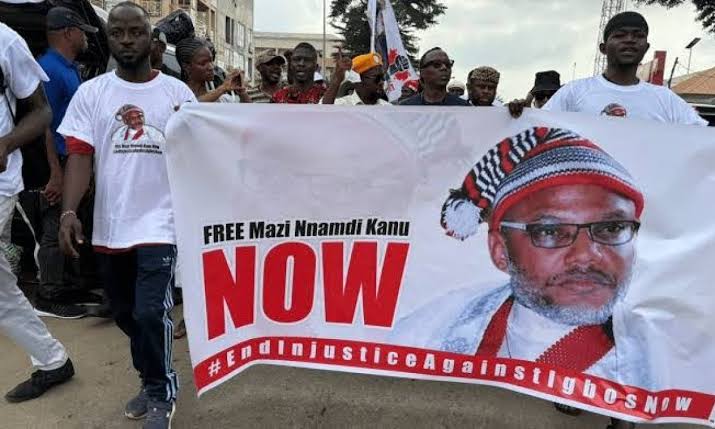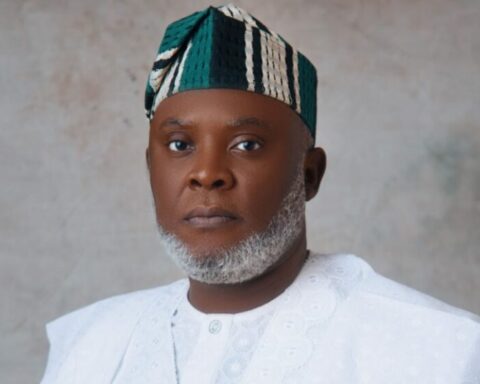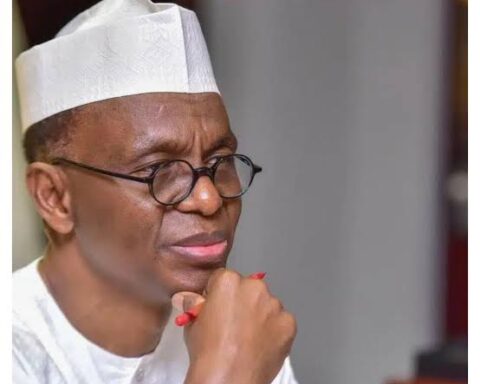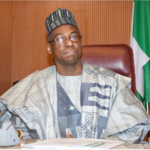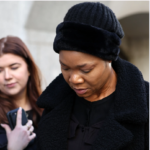The wrath and venom the Federal Government security agencies-police, army, DSS and others, pour on Nigerians each time they want to express themselves in peaceful protest is unacceptable in a free democratic society.

The military cum colonial use of maximum force in a supposedly free society is one of the fundamental anomalies plaguing Nigeria. You can’t beat a child and at the same time close his mouth not to cry.
The military cum colonial style repression was employed by the British colonial masters in 1949 to massacre hapless 21 coal miners and injuring 51 others at Enugu. The incident marked a turning point in Nigeria’s labour movement and the fight for independence. The same colonial cum military repression was employed during the Aba Women’s Riot in 1929, when women rose in protest against imposition of taxes on women, oppressive policies of warrant chiefs and colonial authority. On the last count, 50 women were killed and many injured.
The British colonial government was forced to withdraw tax plans and reassess the warrant chief system. If the colonial government could yield to the feelings of the people, why is it that our present day leaders are obdurate and impervious to the feelings of the people? Why is it that the suffering Nigerians or their massacre during protests don’t matter to the government? And yet we claim to be free and democratic! Why has the Nigerian government adopted impunity as a policy, completely averse to peaceful protest even when it is clear that there is injustice, oppression and suppression?
With regards to the Free Nnamdi Kanu Now protest, there is no doubt that the protest is called for and necessary to draw government attention to the dictum that justice delayed is justice denied. It is within the power of government to bring Mazi Nnamdi Kanu (MNK) to trial for alleged terrorism. This arraignment remains a mere allegation until proven beyond all reasonable doubt, a task that is daunting for the prosecution. The purpose of bringing Kanu to trial should be to convict or acquit him within a reasonable time, without undue delay. But MNK’s trial has been unduly prolonged to the extent of bringing Nigerian judiciary to international ridicule and opprobrium.
Nnamdi Kanu was first arraigned in 2015 and has been detained since June 2021 after he was abducted from Kenya. The trial has faced several delays and setbacks. In October 2022 the Court of Appeal acquitted and discharged Kanu, but he was still kept in detention under DSS custody.
Despite the acquittal, the Federal Government continued to pursue terrorism charges against him leading to further court proceedings. There is the issue of court’s jurisdiction, citing the issue of extraordinary rendition and alleged human rights violations. The court has also granted protective measures for witnesses, including concerns about security and potential intimidation.
In the light of the foregoing, it is understandable why Kanu’s supporters and lawyers view his trial as unduly prolonged. The complexity of the case, combined to the various legal maneuvers, has contributed to the lengthy trial. An accused is arranged in court to be convicted based on concrete evidence or acquitted in the case of the contrary.
Terrorism trials should have a reasonable time frame to ensure that justice is served while respecting the right of the accused. Indefinite detention without trial or prolonged trial proceedings can cause human rights concerns and undermine the integrity of the justice system.
In this regard, it needs to be considered that Nnamdi Kanu has the right to a fair and speedy trial as enshrined in International Human Right law. The prolonged detention can be detrimental to Kanu’s physical and mental wellbeing. Moreover, the passage of time can affect the availability and reliability of evidence and witness, potentially impacting the trial’s outcome.
The right thing to do in the circumstance, in line with international best practices, is to set a time frame for investigations and trials to ensure efficiency and fairness. Conduct regular reviews of the trail progress to prevent unnecessary delays and foster international cooperation to facilitate the sharing of evidence and witness, helping to expedite trials. By implementing these measures, terrorism trials can be conducted in a fair, efficient and effective manner, balancing the need for justice with the rights of Nnamdi Kanu.
It is pertinent, at this juncture, to ask if Nnamdi Kanu’s is the first terrorism trial in Nigeria and whether those others lasted forever. Truth is that Kanu is not the first terrorism trial in Nigeria. Nigeria had conducted mass trials of terrorism suspects, with significant convictions recorded within a reasonable time frame in the Nigeria’s Kainji Detention Facility terrorism trials. In Phase 6 trials, 200 individuals were convicted with sentences ranging from 10 to 30 years. Phase 7 trials resulted in 44 convictions for terrorism financing.
The trials lasted across eight phase. According to the Director of Public Prosecution of the federation, Mohammed Babadoko, the Federal Government concluded 1,743 terrorism trials from 2017 to date, with the most recent Phase 6 taking place in December 2024 and Phase 7 trials resulting in 44 new convictions.
It is not compulsory that every terrorism trial must end in conviction. Where there is no solid evidence, the accused should be acquitted and discharged. For instance, in the case of FRN vs Murktar, the accused was acquitted because the prosecution failed to prove the alleged offense beyond reasonable doubt. The judge noted that the material exhibits presented by the prosecution were discredited as “edited material and not original”. This highlights the challenges faced by prosecutors in terrorism cases, where the burden of proof can be difficult to meet.
In another case, FRN vs Aliyu, the senior state council noted that there was no proof of the suspects’ involvement in any criminal act and the allegation of terrorism seemed to be unfounded. The prosecution requested further investigation to gather credible evidence, noting that the case did not meet the required standard for conviction.
The complexity of terrorism trials is compounded by factors such as lack of evidence-prosecutors often struggle to convert intelligence into admissible evidence. Again, intelligence reports can be patchy, and their reliability can be questionable. Finally, ensuring due process and protecting human right can be challenging in terrorism cases.
Against the foregoing backdrop, the Free Nnamdi Kanu protest raises questions of justifiability from the perspective of government with its aversion for demonstrations and protest but from the perspective of supporters of the protest, the action is justified on the following grounds;
Human Rights violations. Kanu’s prolonged detention has attracted scathing criticisms from human rights organizations from around the world. Amnesty International, for instance, has expressed concern about the treatment and the fairness of his trial.
Unlawful rendition: Kanu was abducted in Kenya and brought back to Nigeria, which his lawyers argue is a violation of international law and his human rights.
Lack of due process: Ardent observers say that Kanu’s trial has been marred by irregularities, including allegations of bias and judicial misconduct.
For one thing, the protest has drawn international attention, with human rights organization and foreign government calling for Kanu’s release.
That the protest was led by Omoyele Sowore, a dogged Yoruba Human Rights activist is a plus for Nigeria’s unity. The cross-ethnic concern and cooperation is laudable.
Nigeria should strive to maintain integrity as a free democratic civilized country. The country cannot be respected in the comity of nations when everything about her goes contrary to acceptable international norms and best practices.
Dr. Onyekakeyah, a former member of The Guardian Editorial Board, is a public affairs commentator and a Daily Query columnist.
Follow us on all social media platforms @dailyquery for news and analyses around the globe.
